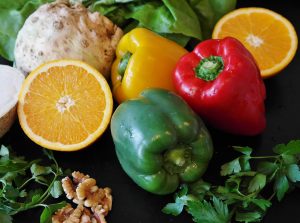 A variety of foods contain essential nutrients that play key roles in a healthy immune system. Specifically, this group of nutrients includes: vitamin A, vitamin C, vitamin D, vitamin E, B6, B12, folate, copper, iron, magnesium, selenium and zinc. Foods containing these nutrients work together at every stage of the immune response to maintain or enhance immune cell activity.
A variety of foods contain essential nutrients that play key roles in a healthy immune system. Specifically, this group of nutrients includes: vitamin A, vitamin C, vitamin D, vitamin E, B6, B12, folate, copper, iron, magnesium, selenium and zinc. Foods containing these nutrients work together at every stage of the immune response to maintain or enhance immune cell activity.
Factors that Reduce Immune Function
- Stress
- Lack of sleep
- Reduced physical activity
- Poor eating habits
- Environmental factors such as air pollution
Benefits of Healthy Eating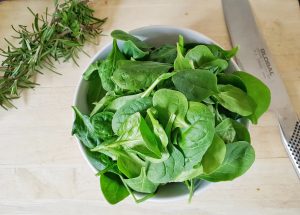
Eating foods containing this particular set of nutrients helps maintain the health of skin, body hair, and mucus membranes in the lungs and digestive tract that prevent entry of infectious organisms into the body – which provides a physical barrier to infection by:
- Protecting cell membranes from damage caused by infection
- Supporting healthy function of the digestive tract which limits entry of disease-causing organisms into the body through the intestines
- Enhancing and optimizing immune cell activity to better fight infections
- Regulating antimicrobial effects to help kill pathogens
- Increasing the body’s anti-inflammatory response to fight infection
- Contributing to antibody production and function
Food Sources of Immune-Boosting Nutrients
It is recommended to eat foods that bring color to your plate in order to get immune-boosting nutrients. A diverse diet eaten daily typically contains adequate amounts of the following vitamins and minerals:
Vitamins:
- A: Sweet potatoes, pumpkin (canned pumpkin), Winter squash (acorn, butternut, spaghetti), carrots, red and orange bell peppers, apricots (fresh or dried), mango, papaya, cantaloupe, avocado, broccoli, spinach, kale, dark leafy greens, eggs, fish (canned tuna), fortified milk
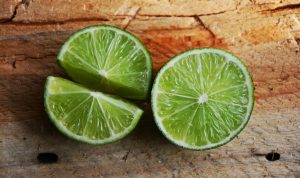
- C: Oranges, lemons, limes, pineapple, strawberries, raspberries, blueberries, cranberries, watermelon, kiwi, tomatoes, green bell peppers, broccoli, kale, potatoes
- D: Fortified milk, ricotta cheese, eggs, salmon (fresh or canned), tuna (fresh or canned), sardines, shrimp, oysters, tofu, mushrooms
- E: Almonds, almond butter, sunflower seeds, peanuts, peanut butter, avocado, olives, olive oil, any vegetable oil, salmon, shrimp, broccoli, spinach, kale
- B6: Lean beef, lean pork, chicken, turkey, fish (salmon, tuna), pistachios, sunflower seeds, banana, dried apricot, spinach
- B12: Lean beef, lean pork, chicken, turkey, fish (salmon, tuna, sardines, trout) shellfish (crab, clams, mussels), milk, non-fat plain Greek yogurt, Swiss cheese, eggs
- Folate (B9): Spinach, kale, leafy greens, broccoli, asparagus, cauliflower, Brussels sprouts, beets, bell peppers, avocado, oranges, papaya, nuts and seeds, beans (pinto, black or red beans), peas, lentils
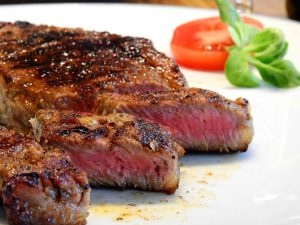 Minerals:
Minerals:
- Copper: Shellfish (shrimp, oysters), fish (salmon), tofu, cashews, sesame seeds, shiitake mushrooms, sweet potatoes, garbanzo beans, avocados, dark chocolate (at least 70% cocoa)
- Iron: Lean beef, lean pork, chicken, turkey, fish, shellfish, spinach, kale, leafy greens, dried apricots, prunes, beans, lentils
- Magnesium: Spinach, almonds, almond butter, pumpkin seeds, peanuts, peanut butter, cashews, quinoa, oats, oatmeal, beans, avocado, dark chocolate (at least 70% cocoa), unsweetened cocoa powder
- Selenium: Lean beef, lean pork, chicken, turkey, fish (tuna, halibut, sardines), shellfish (shrimp, oysters), eggs, Brazil nuts, chia seeds, spinach
- Zinc: Lean beef, chicken, fish, shellfish, almonds, cashews, pumpkin seeds, spinach, mushrooms, dark chocolate (at least 70% cocoa), unsweetened cocoa powder
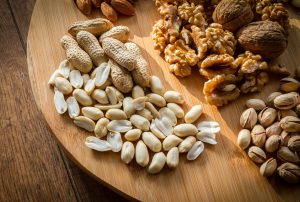 With technology at your fingertips, there are many different apps such as Choose My Plate that can help you create a healthy diet plan. You may also use a credible website like the USDA’s Nutrition.gov to help make healthful eating choices and gather nutritional information about specific foods and nutrients.
With technology at your fingertips, there are many different apps such as Choose My Plate that can help you create a healthy diet plan. You may also use a credible website like the USDA’s Nutrition.gov to help make healthful eating choices and gather nutritional information about specific foods and nutrients.
Source: Gombart, A.F.; Pierre, A.; Maggini, S. A Review of Micronutrients and the Immune System – Working in Harmony to Reduce the Risk of Infection. Nutrients 2020, 12, 236. Content provided courtesy of Jenifer Bowman, MS, RD with University of Colorado Health.


Great article Jess! I love to see that strawberries made the list of vitamin C-rich foods. The farmers out here in California are working hard to get all the excess strawberries safely to grocery stores and food banks right now.